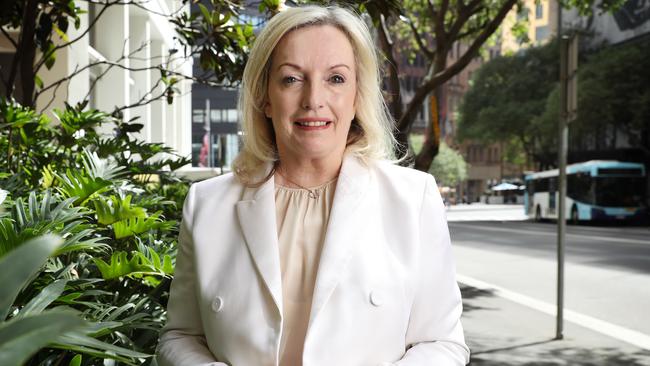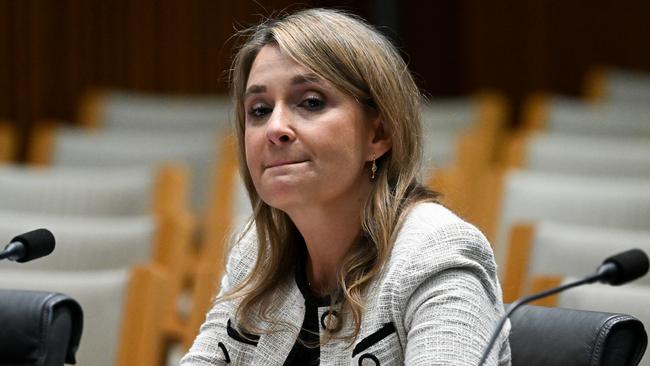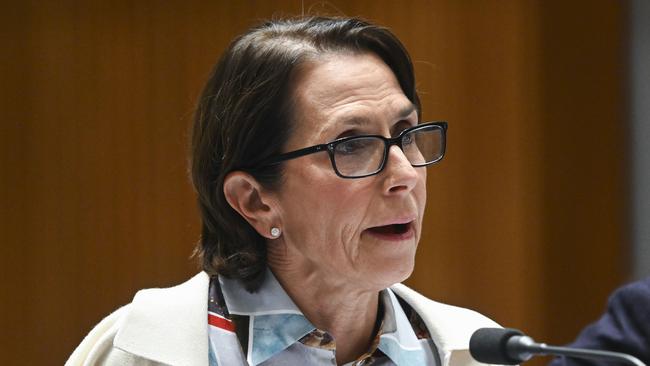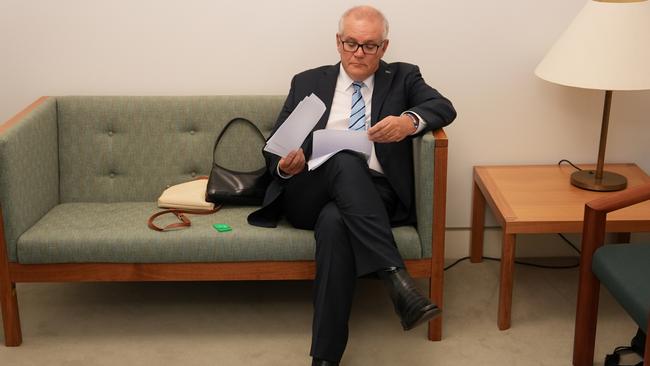Poor treatment of women in positions of authority discourage others from top jobs, says Holgate
Disparagement of women in high-profile roles discourages others from aspiring to lead companies, says the former Australia Post chief.

Criticisms of high-profile women, such as Virgin Australia chief executive Jayne Hrdlicka or former Optus boss Kelly Bayer Rosmarin, discourages women from aspiring to become chief executives, says former Australia Post head Christine Holgate.
In an interview with The Australian, Ms Holgate, who is now chief executive of logistics company Team Global Express, said many women had approached her saying that they did not want to be a chief executive because of what happened to her at Australia Post.
Ms Holgate left Australia Post in November 2020 after then prime minister Scott Morrison told parliament that “she can go” after a Senate hearing in which she revealed that four Australia Post executives were rewarded with Cartier watches as a bonus after securing a lucrative deal with three banks.
In 2021 she joined logistics company Team Global Express as chief executive after it was bought by private equity company Allegro Funds from Japan Post.
“After everything that happened to me, a lot of women have come forward and asked me for advice,” she said ahead of International Women’s Day. “But, sadly, they often say to me I don’t want to be a CEO because I don’t want to happen to me what happened to you or what happened to Kelly [Bayer Rosmarin].
“Unfortunately, some female leaders like Jayne Hrdlicka have found themselves in the media [being criticised], and a lot of women are thinking ‘Do I want that profile? I would like to be under the radar but still have a great career’.”
Ms Holgate, a former chief executive of Blackmores and senior executive at Telstra, said people needed to accept that they would receive setbacks in their careers, and have the resilience to try to come back from these events.
“Whether you are a man or a woman, something’s going to go wrong, whether you plan for it or not,” she said. “It’s not whether something will go wrong, it’s how you get back up again.”
But she said she thought “it would be great if we could have more support for women leaders to get back up again”.

“A lot of younger women are thinking that they don’t want to put themselves through that.”
Ms Bayer Rosmarin resigned as chief executive of Optus last year after an outage of the telco’s network that followed the revelation a year earlier that the firm had been hacked with the loss of personal data.
Ms Hrdlicka’s handling of her role as chief executive of Virgin has been publicly debated since it was revealed last month that she had been asked to step down from her role after 3½ years in the job.
Ms Holgate said the criticism and personal attacks on high-profile women in CEO roles was adding to a natural hesitancy by some women to put themselves forward for leadership roles.
“There is the old adage that women will look at a job description which has 10 things in it and find the three things they can’t do,” Ms Holgate said.
“They immediately go: ‘I can’t apply for it’. The men will look for the three things they can do and assume they have got the job.”
She said there was a confidence difference between men and women in applying for senior roles in business.
“I wonder if it is actually a cultural or a societal difference,” she said. She added that women were “our own worst enemies with some of our self talk. We’re clearly as competent and we need to encourage ourselves [to take more leadership roles]”.
“Every really big break that I’ve been given has been given to me by a man,” she said.
Ms Holgate was encouraged to join Blackmores in 2008 as chief executive by founder Marcus Blackmore.
The co-founder of Allegro Funds, Adrian Loder, spent several months in 2021 – after Ms Holgate had left Australia Post – recruiting her to join what was then called Toll Global Express.
Ms Holgate said every woman who had become a chief executive had a different story that included having to cope with setbacks. “They have had to have resilience from early on,” she said. “It is not a bad trait [to have] for a man or a woman.”

Ms Holgate happened to be in the federal parliament building recently on the day that Mr Morrison gave his farewell speech.
But she would not comment on his departure, saying she “did not want to be defined” by his treatment of her or her much publicised exit from Australia Post.
Ms Holgate said that while there had been a lot of progress for women in business in Australia during her career, Australia was still behind many other countries, including in Asia, in having women in senior roles in business.
She said this week’s ASEAN summit in Melbourne, where she was a speaker, had had a high level of senior women from the region including from smaller countries, adding that the use of digital technology in Asia – where some countries, such as Indonesia, were “leapfrogging” in their use of technology – was helping women in business.
“In some of these countries they have leapfrogged when it comes to using technology,” she said. “The average person in Singapore has more than one mobile phone, there is much more use of technology in Indonesia.
“This is enabling more women to be involved in the workforce and to be able to work in different ways, including starting up businesses and training remotely, which is really encouraging.”
She said Australia ranked very highly in terms of the percentage of women coming out of higher education, but it ranked much lower when it came to the participation of women at senior levels in business.
Ms Holgate, who heads up a staff of 15,000 at Team Global, including contractors, has a female chief operating officer and is just about to appoint another woman to the executive leadership team, with four of the top eight executives now women.
“I don’t think you are going to find many other transport companies with that many senior women in them,” she said. She added that she believed there was a responsibility as a chief executive or business leader to be seen to be contributing to society. She said this included speaking on issues such as the need for more diversity in the workforce, which were relevant to the company. But she added that business leaders had to be careful if they were using their roles to espouse their personal views.

“There is a responsibility that comes with leadership that you contribute towards society,” she said.
“You have to be very careful as a CEO that what you say is really in the best interests of your organisation, or are they your own personal views, because you are only one person in the organisation.
“Talking about the participation of women in the workforce for me makes economic sense for our company.”
She said Team Global was now working hard to train more women truck drivers, a factor that was being made easier by the introduction of electric trucks. “We have a shortage of drivers so let’s train women to be drivers,” she said. “Treating women with the same respect as we treat men is really important.”
She said it was good for the Australian economy to have more women in full-time work. She said this would require more encouragement of women in the workforce, including the ability to train and retain women in new roles.
She said public support for diversity by senior executives of a company such as Team Global was something that would encourage staff of different backgrounds.
“Often when something big comes up, people ask me what are our views as an organisation,” she said. “I always try to reflect that when we have a strong view it must reflect the organisation, and not just my personal interests.”

